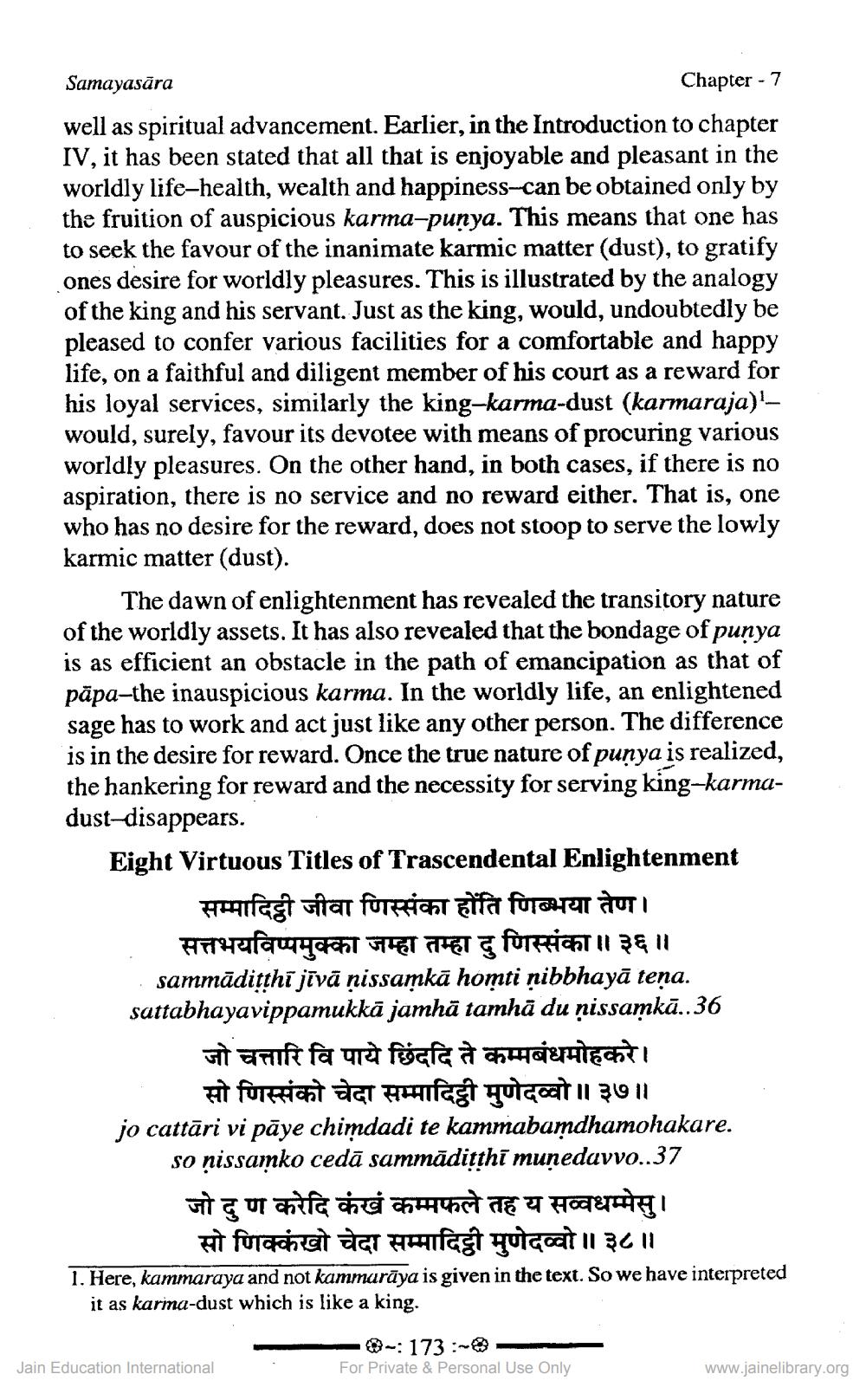________________
Samayasāra
Chapter - 7 well as spiritual advancement. Earlier, in the Introduction to chapter IV, it has been stated that all that is enjoyable and pleasant in the worldly life-health, wealth and happiness-can be obtained only by the fruition of auspicious karma-punya. This means that one has to seek the favour of the inanimate karmic matter (dust), to gratify ones desire for worldly pleasures. This is illustrated by the analogy of the king and his servant. Just as the king, would, undoubtedly be pleased to confer various facilities for a comfortable and happy life, on a faithful and diligent member of his court as a reward for his loyal services, similarly the king-karma-dust (karmaraja)! would, surely, favour its devotee with means of procuring various worldly pleasures. On the other hand, in both cases, if there is no aspiration, there is no service and no reward either. That is, one who has no desire for the reward, does not stoop to serve the lowly karmic matter (dust).
The dawn of enlightenment has revealed the transitory nature of the worldly assets. It has also revealed that the bondage of punya is as efficient an obstacle in the path of emancipation as that of pāpa-the inauspicious karma. In the worldly life, an enlightened sage has to work and act just like any other person. The difference is in the desire for reward. Once the true nature of punya is realized, the hankering for reward and the necessity for serving king-karmadust-disappears. Eight Virtuous Titles of Trascendental Enlightenment
सम्मादिट्ठी जीवा णिस्संका होति णिब्भया तेण। सत्तभयविप्पमुक्का जम्हा तम्हा दु णिस्संका॥३६॥ sammādițshī jīvā ņissamkā homti ņibbhayā tena. sattabhayavippamukkā jamhā tamhā du ņissamkā..36
जो चत्तारि वि पाये छिंददि ते कम्मबंधमोहकरे।
सो णिस्संको चेदा सम्मादिट्ठी मुणेदव्वो॥३७॥ jo cattāri vi pāye chimdadi te kammabamdhamohakare.
so ņissamko cedā sammāditthí munedavvo..37 जो दु ण करेदि कंखं कम्मफले तह य सव्वधम्मेसु।
सो णिक्कंखो चेदा सम्मादिट्ठी मुणेदव्वो॥३८॥ 1. Here, kammaraya and not kammurāya is given in the text. So we have interpreted
it as karma-dust which is like a king.
- - 173: For Private & Personal Use Only
Jain Education International
www.jainelibrary.org




